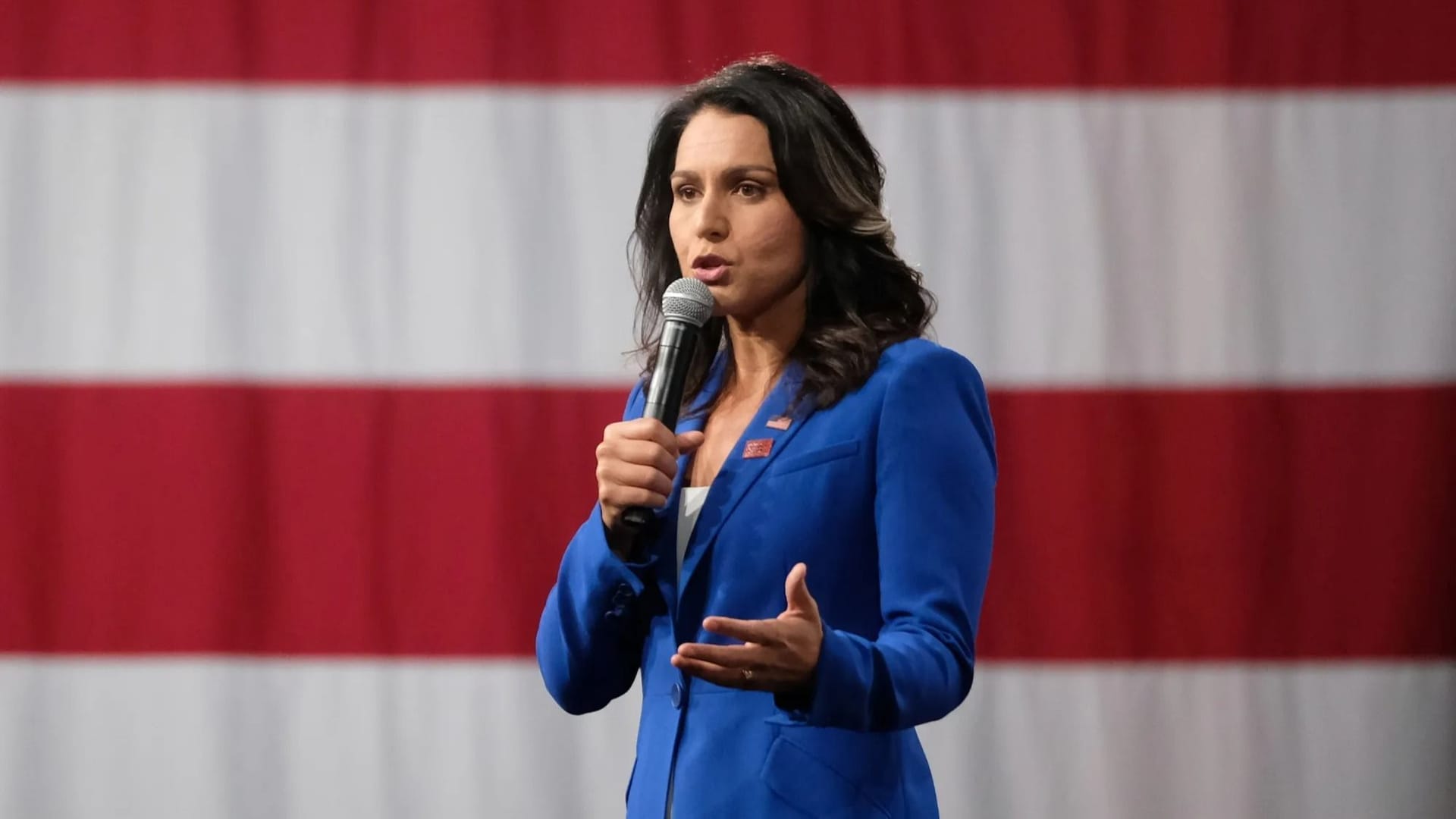In Defense of Tulsi Gabbard

The party I joined over twenty years ago no longer exists today. I could no longer remain in today’s Democrat Party, which is now under the complete control of an elitist cabal of warmongers fueled by cowardly wokeness who divide us by racializing every issue. - Tulsi Gabbard, For Love of Country.
On October 23, 2024, Tulsi Gabbard officially joined the Republican party. In August she had officially endorsed Donald Trump for President—a surprising move for someone who was once a rising star in the Democrat party. To those familiar with Gabbard’s career, it's another chapter in the story of an anti-establishment figure who was never comfortable with party politics.
Gabbard first gained national attention as a veteran and an outspoken critic of the Iraq War. Her anti-war stance found a home in the Democratic Party, and in 2011, it propelled her to a Congressional seat from Hawaii. During the Obama years, Gabbard was just as vocal against intervention in Libya and Syria, warning against committing the United States to 'endless wars' in the Middle East. Her convictions led her to a controversial meeting with Syrian dictator Bashar al-Assad, which drew widespread criticism from both Democrats and Republicans, with many accusing her of legitimizing Assad's regime. Despite the backlash, Gabbard defended her actions, arguing that diplomacy—even with adversaries—is crucial for achieving peace.
In 2020, Gabbard ran for president, and despite her progressive platform, she was quickly marginalized by her own party’s leadership. Her most significant impact on the primary was when she challenged Kamala Harris in a heated debate, effectively ending Harris's campaign. This moment underscored Gabbard’s role as a disruptor, similar to other anti-establishment figures such as George McGovern, Barry Goldwater, and Ross Perot. They were populists in their own right, appealing to voters who felt alienated by both major parties.
Today, the political landscape is far less tolerant of renegades like Gabbard. Institutional power has been centralized by party elites. Loss of public trust in institutions has made it easier for those in power to paint dissenters as “crazy” or irrelevant. Perhaps that explains her support of Donald Trump, the most unique force in American politics to have defied the establishment.
Gabbard’s politics have consistently advocated for a non-interventionist foreign policy. She has been a vocal critic of the technocratic elite that dominate today’s Democrat Party. Witness the way the revolt by billionaire donors resulted in the removal of Joe Biden from the presidential ticket, without a single vote being cast. Even Bernie Sanders, who portrays himself as a revolutionary, has long been entrenched within the Democrat political machine. Gabbard was one of the few willing to speak truth to power - which put her at odds with the Democrat party’s urban, college-educated elite who sidelined the rural and working-class democrats. These voters are her natural base, informing her populist views on anti-woke politics, economic reform, and restraint on American militarism.
Perhaps Gabbard's recent endorsement of Trump is better understood through the concept of agonism—a political theory that values conflict as a legitimate, necessary part of a healthy democracy. Agonism views the tension that arises from opposition as crucial for maintaining accountability and innovation. By endorsing Trump, Gabbard is making an agonistic move—challenging the prevailing political norms and calling for a reevaluation of the rigid partisan lines that dominate American politics. Gabbard may not align with Republicans on every issue, but she recognizes the legitimacy of their perspective. It’s a crucial step toward genuine compromise and offers a potential path out of the quagmire of partisan politics.
Personally, it has been exciting to watch the first Hindu politician navigate the twists and turns of American politics. Given her activist background and her non-Christian identity, she probably never had a chance. American politics has consistently struggled with non-christian, non-white identities that don’t easily fit into the post-civil rights racial hierarchy. Witness the attacks on Kamala Harris, or Nikki Haley’s ethnic identities. Although she was vice-chair of the DNC in 2013, her feud with DNC chairwoman Debbie Wasserman Schulz and her general anti-elitist stance did not earn her many allies. She could have used her position to court corporate donors and cultivate media relationships, but she refused to play the Washington ‘Game of Thrones’. Unlike Bernie, or AOC, she also refused to compromise her convictions to gain favor within the party elite.
Gabbard's endorsement of Trump came on the second anniversary of the Abbey Gate bombing in Kabul. While much of the Democratic establishment seemed eager to move past the tragedy, Trump made a point to support the families and survivors. By endorsing Trump, Gabbard is aligning herself with this outsider approach, refusing to let the incident be swept under the rug.
Tulsi Gabbard’s endorsement of Donald Trump is not just about supporting a candidate from the rival party for political benefit—it is a bold statement against the entrenched power structures of both major American parties. It serves a reminder that in a truly democratic society, dissent and conflict are not only inevitable but essential for progress. As she navigates her new position within the GOP, I trust that she will continue to hold her ground and speak truth to power.


Member discussion